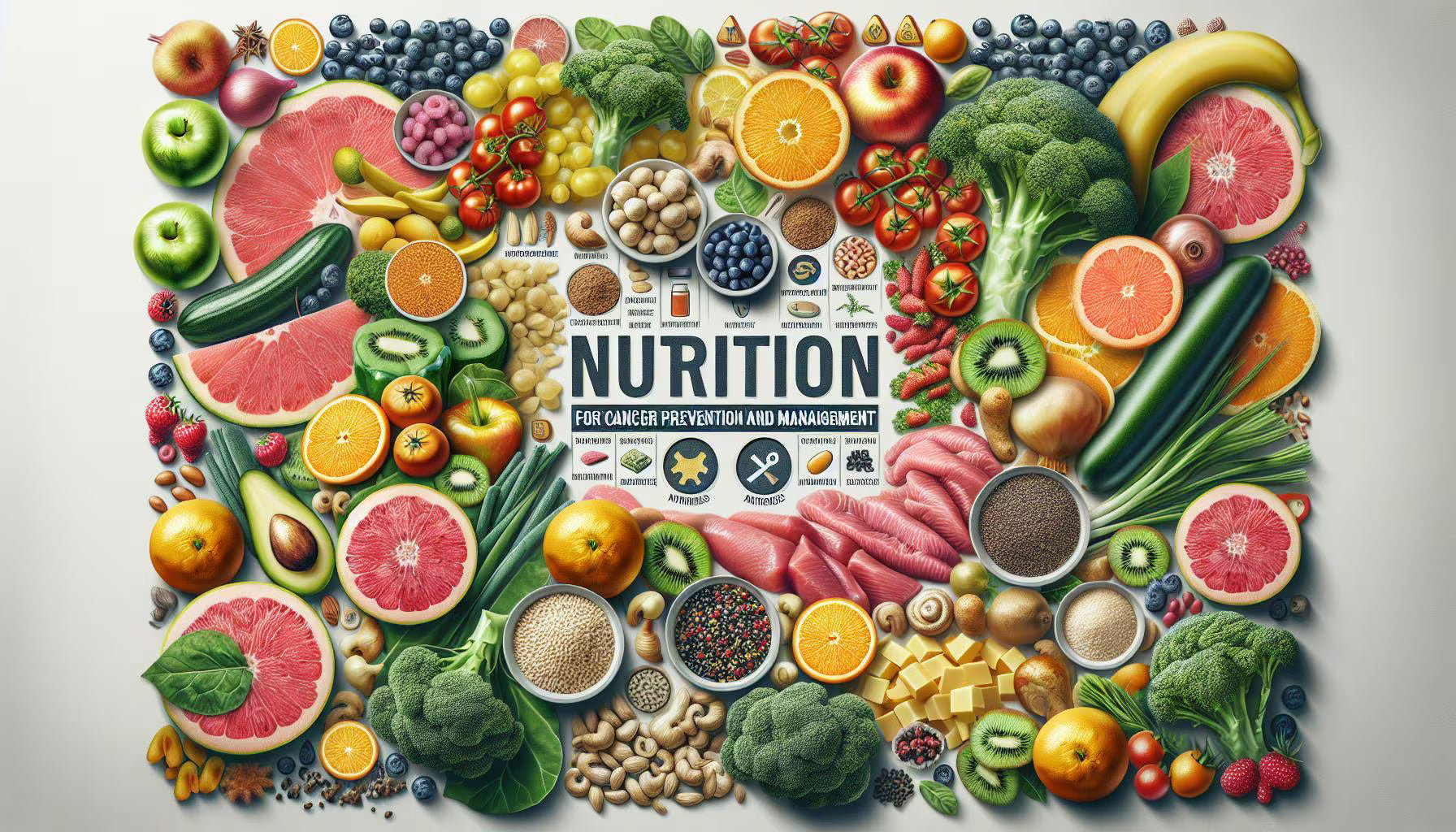Throughout this guide, we will delve into the intricacies of a cancer-preventive diet, discuss the impact of antioxidant-rich diets and dietary fibers on cancer risk reduction, and explore the aspects of Nutrition During Chemotherapy. We aim to provide practical and evidence-based nutritional guidelines that anyone can follow, in efforts to reduce their cancer risk, manage existing conditions, and improve their overall wellbeing. Let’s get into it!
Understanding the Role of Nutrition in Cancer Prevention
When it comes to cancer prevention, the phrase “you are what you eat” gains a whole new magnitude. A well-balanced, nutritious diet can play a pivotal role in reducing your cancer risk.
Impact of Nutrient-Dense Foods on Cancer Risk
Foods rich in essential nutrients (antioxidants, vitamins, and minerals) have been linked to a lower risk of certain types of cancer. Regular intake of fruits and vegetables, for instance, equips the body with natural defenses capable of fighting cell damage and mutations that may lead to cancer.
Balancing Diet and Lifestyle for Cancer prevention
The interplay between diet and lifestyle can also significantly impact your cancer risk.
Importance of Physical Activity Alongside Nutrition
A lifestyle featuring regular physical activity, paired with a nutritious diet, can create a robust defense against cancer. Essentially, being active helps regulate metabolic functions, including digestion, which directly influences nutrition and cancer risk.
Dietary Adjustments for Cancer Management
Beyond prevention, nutrition also comes into play when managing existing cases of cancer.
Optimizing Diet During Cancer Treatment
Adjusting dietary habits to accommodate the body’s needs during cancer treatment can have remarkable effects on the patient’s response to treatment, strength levels, and overall quality of life.
The Role of Nutrition Post-Treatment
The role of nutrition doesn’t cease once cancer treatment concludes. A healthy, balanced diet is essential even after the treatment has ended.
Diet for Post-Treatment Recovery
Eating right in the post-treatment phase can expedite the recovery process, help manage side effects, and minimize the risk of recurrence.
Specialist Guidance for Cancer-Related Nutrition
While the knowledge we share here is vital, professional guidance is indispensable for personalized, effective nutritional strategies for cancer prevention and management.
Collaborating with Dietitians
Working with a dietitian who specializes in oncology nutrition ensures an individualized diet plan that best suits your body’s needs and strength levels, both for those looking to prevent cancer and those in various stages of management.
The Future of Nutrition in Cancer Prevention and Management
The future holds promising developments for improving the effectiveness of nutritional strategies in combating cancer.
Ongoing Research on Cancer and Nutrition
With continuous research, newer dietary guidelines and preventive measures are emerging, paving the way for more effective, customizable, and comprehensive nutritional strategies against cancer.
Conclusion
From understanding the role of nutrition in preventing cancer to learning about the effective dietary adjustments for managing the disease, we hope this guide on “Nutrition for Cancer Prevention and Management” has offered the in-depth insight you needed. Remember, a balanced, nutrient-rich diet alongside an active lifestyle forms the cornerstone of cancer prevention. Take the time to reflect on your current diet and lifestyle choices. Need a change? You have the power to make it happen and guard your health against this global menace.
Frequently Asked Questions – FAQ’s
Can a healthy diet completely prevent cancer?
While a healthy diet significantly lowers your cancer risk, it’s not a guarantee against cancer. It’s just one aspect of several lifestyle factors that influence cancer risk.
What foods should I avoid to reduce my cancer risk?
Highly processed foods, red and charred meats, and foods high in added sugars can increase cancer risk and should therefore be limited.
Can I adjust my diet to help manage the side effects of chemotherapy?
Yes, with the guidance of an oncology dietitian, certain dietary modifications can help manage side effects like nausea and loss of appetite.
What should a post-treatment diet look like?
A post-treatment diet should be balanced, rich in fruits and vegetables, lean proteins, and whole grains to support healing and recovery.
How can I work with a dietitian to improve my diet for cancer prevention or management?
You can ask your doctor for a referral to an oncology dietitian who can create an individualized diet plan based on your specific needs, preferences, and health status.










